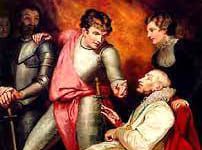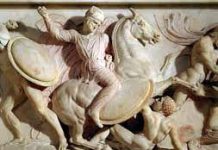Shakespearean Adaptations

Shakespearean Adaptations
Introduction
The enduring appeal of William Shakespeare’s works lies not only in their intrinsic brilliance but also in their adaptability. Across centuries, artists, filmmakers, and writers have reimagined and adapted Shakespearean plays, sonnets, and characters, bringing fresh perspectives to these timeless tales. This essay explores the diverse landscape of Shakespearean adaptations, spanning various artistic mediums and cultural contexts.
Film Adaptations
Film adaptations of Shakespearean plays have been a significant avenue for introducing the Bard’s work to a broader audience. Directors and filmmakers have embraced the challenge of translating the richness of his language and themes to the visual medium.
Classic Cinematic Interpretations
Iconic film adaptations, such as Laurence Olivier’s “Hamlet” (1948) and Franco Zeffirelli’s “Romeo and Juliet” (1968), set the stage for future cinematic explorations of Shakespearean works. These adaptations often remain faithful to the original text while leveraging the visual medium for storytelling.
Contemporary and Modern Takes
Modern filmmakers, including Baz Luhrmann in “Romeo + Juliet” (1996) and Kenneth Branagh with “Much Ado About Nothing” (1993), have offered innovative interpretations. These adaptations may transpose settings and periods, breathing new life into the narratives.
Television Adaptations
Television adaptations of Shakespearean plays have extended the accessibility of his works, allowing audiences to experience the Bard’s magic from the comfort of their living rooms.
Series and Anthologies
Television series like “The Hollow Crown” (2012) present adaptations of Shakespeare’s history plays, providing a comprehensive exploration of his political dramas. Anthologies, such as “Shakespeare: The Animated Tales” (1992–1994), offer creative animated renditions that cater to diverse audiences.
Modernized Settings and Interpretations
Contemporary television adaptations often experiment with settings and cultural contexts. The modern-day adaptation of “Othello” in the television series “Othello: The Remix” (2015) exemplifies the creative flexibility embraced by contemporary storytellers.
Literary Adaptations
Shakespeare’s influence extends to literature, where authors draw inspiration from his plays and characters to craft original works or reinterpret existing narratives.
Retellings and Spin-offs
Authors like Margaret Atwood (“Hag-Seed,” 2016) and Jane Smiley (“A Thousand Acres,” 1991) have reimagined Shakespearean tales. These literary adaptations often provide alternative perspectives and explore the untold stories of secondary characters.
Genre Blending and Mashups
Some adaptations blend Shakespearean themes with other genres. Tom Stoppard’s “Rosencrantz and Guildenstern Are Dead” (1966) is a play that humorously explores the lives of two minor characters from “Hamlet.”
Stage Productions:
Stage adaptations of Shakespearean plays remain a fundamental and dynamic aspect of his legacy. The theater continues to be a vibrant space for exploring the nuances of his works.
Traditional Renditions
Many theaters globally continue to stage traditional productions of Shakespearean plays, preserving the integrity of the original text. These renditions often appeal to both purists and those seeking an authentic theatrical experience.
Innovative Theater Productions
Contemporary theater directors experiment with innovative approaches to Shakespearean works. The Royal Shakespeare Company’s production of “Hamlet” (2016), set in a post-apocalyptic world, showcases the adaptability of the Bard’s narratives.
Global and Cultural Adaptations:
Shakespearean adaptations have taken root in various cultures, inspiring localized interpretations that reflect the diversity of human experiences.
Asian and African Perspectives
In Asia, adaptations like Akira Kurosawa’s “Throne of Blood” (1957) offer a Japanese rendition of “Macbeth.” In Africa, productions such as “Sizwe Banzi is Dead” (1972) draw on Shakespearean themes to address post-colonial issues.
Cultural Fusion and Expression
Cultural adaptations often infuse traditional elements, dance, and music into Shakespearean works. The Bollywood film “Omkara” (2006), based on “Othello,” exemplifies the dynamic fusion of cultures.
Digital Media and Online Platforms:
The digital age has ushered in a new era of Shakespearean adaptations, leveraging online platforms and digital media to reach diverse audiences.
Digital Theater Productions
Digital platforms offer opportunities for streaming theater productions to a global audience. The Globe Theatre’s “Globe Player” and other streaming services make Shakespearean performances accessible beyond physical theaters.
Interactive and Transmedia Adaptations
Interactive digital adaptations, such as video games like “Elsinore” (2019), allow audiences to engage directly with Shakespearean narratives. Transmedia projects explore Shakespearean worlds across multiple digital platforms, creating immersive experiences.
Conclusion
Shakespearean adaptations, spanning film, television, literature, theater, and digital media, form a rich tapestry of creative expressions. The adaptability of his works speaks to their enduring relevance and universal appeal. From traditional renditions on stage to avant-garde interpretations in film and the dynamic world of digital media, Shakespeare’s legacy continues to thrive and evolve, captivating audiences across the globe. 0 0 0.
Shakespearean Adaptations, Shakespearean Adaptations
N.B. The article ‘Shakespearean Adaptations’ originally belongs to the book entitled ‘Essays on Shakespeare and His Time‘ by Menonim Menonimus.
You May Like:
Additional Searches:










